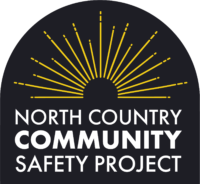Ethan Freeman. David Donovan. Mark Clermont. These three men were killed by police officers in the last three months of 2020—all in northern New Hampshire, a region containing only 17.3% of the state’s population.
Two of the three victims, Clermont and Donovan, were struggling with mental illness and addiction. Though there is very little information available on Donovan and Freeman’s shootings, it seems these circumstances led directly to police involvement and ultimately their deaths.
In contrast, presumably because an officer was injured in the altercation, there is much more publicity surrounding Clermont’s shooting—perhaps indicative of the lack of empathy typically shown to those who are victims of police violence.
The Caledonian Record and InDepthNH.org have reported on the struggles Mark Clermont faced in the months leading up to his killing. He was battling addiction, and the Whitefield Police Department (WPD) had repeatedly responded to calls concerning his mental health. The calls began as early as April, eight months before a state trooper exchanged gunfire with Clermont. The WPD recognized that Clermont had become a potential danger to officers and the public, going as far as putting out an officer safety bulletin in September. After the shooting, Chief Samson recognized that the department had known Clermont was going through a mental crisis and was “anti-police” for months.
And yet, the police continued to be the entity that interacted with Clermont during his crises. Police are the ones who respond to calls like these not because they are the best resource to respond to people struggling with drug use and mental illness, but simply because they are the only service that our communities have empowered to do so.
Research from the American Public Health Association shows that facilitating access to addiction and mental health treatment is more effective at reducing crime and violence than traditional policing—and can save communities money. However, the types of social services that could have helped Freeman, Donovan, and Clermont are chronically underfunded in New Hampshire.
We call on our community to learn from our mistakes. We have the ability to fund the services that could prevent these kinds of violence. This approach will drastically reduce the pain and hardship inflicted on our communities by addiction and mental illness.
Many organizations dedicated to drug rehabilitation and healing exist in our area, but limited resources hamper their work. We must commit to treatment instead of criminalization and stigma. That may mean making hard decisions in our town budgets. It certainly means demanding that federal and state officials provide resources not only for existing emergency services, but also for services that can reduce the need for them in the first place.
In working for the wellbeing of individuals, we ensure the wellbeing of all.
